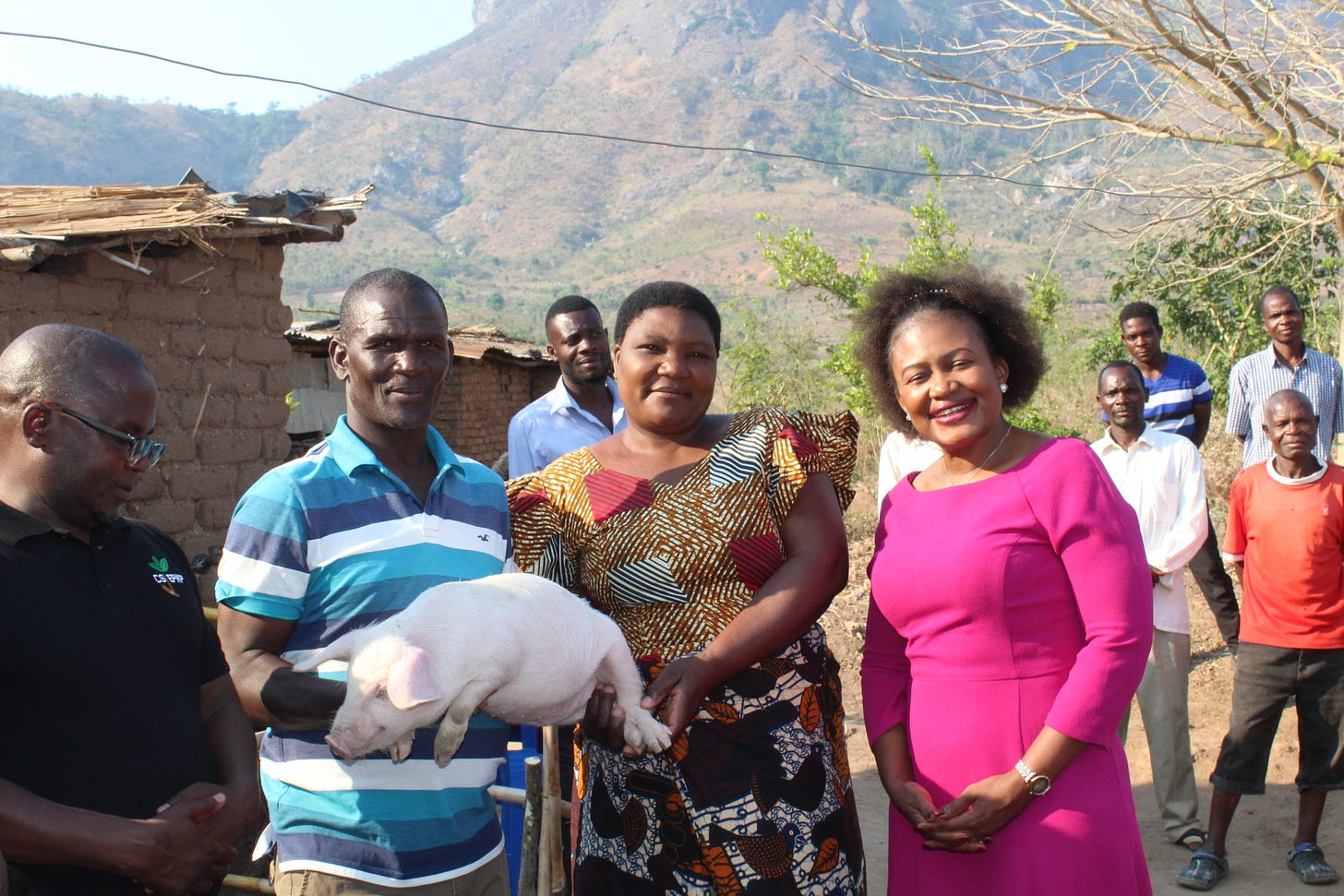ActionAid Malawi urges smallholder farmers to adopt agro-ecology
Pamela Kuwali, Executive Director of ActionAid Malawi, made the remarks today in Chiradzulu while handing over livestock worth K25 million to 560 farmer groups as part of the EU-funded KULIMA-BETTER.
Malawi: In response to the rising cost of inorganic fertiliser, which may force many smallholder farmers into famine, ActionAid Malawi has urged smallholder farmers in the country to practise agro-ecology, which entails applying organic manure made from locally available materials.
Pamela Kuwali, Executive Director of ActionAid Malawi, made the remarks today in Chiradzulu while handing over livestock worth K25 million to 560 farmer groups as part of the EU-funded KULIMA-BETTER project, which the organisation is implementing in Chiradzulu and Nkhatabay through a consortium led by Self Help Africa.
Smallholders, according to Kuwali, need to be empowered to begin producing organic fertiliser in order to achieve higher yields in the face of climate change and rising inorganic fertiliser costs.
She claims that distributing livestock to farmer groups will increase household income security while using the dung as crop fertiliser.
She stated that, since 2018, ActionAid Malawi has been collaborating with the Directorate of Agriculture, Environment, and Natural Resources in both the Chiradzulu and Nkhatabay districts to empower smallholder farmers through the farmer field school (FFS) approach to achieve food, income, and nutritional security as a household while also increasing their resilience to climate change-induced shocks.
Speaking at the same event, Lusungu Mtokali-Banda, Director of Agriculture, Environment, and Natural Resources praised ActionAid Malawi for assisting the district council in strengthening the capacity of smallholder farmers to use high-yielding technologies and practices.
She stated that the council would continue to fund all interventions after the project was completed.
Monica Mwambisi, one of the smallholder farmers, stated that her family's well-being has improved since joining the KULIMA-BETTER project in 2018 through Tikondane FFS.
"I can now harvest more, and thanks to the village savings and loans initiative, which is part of the interventions, I now have more disposable income to provide necessities for my family. The pigs we just received will only help us and improve our livelihoods, both in terms of income and organic fertiliser production," Mwambisi explained.




